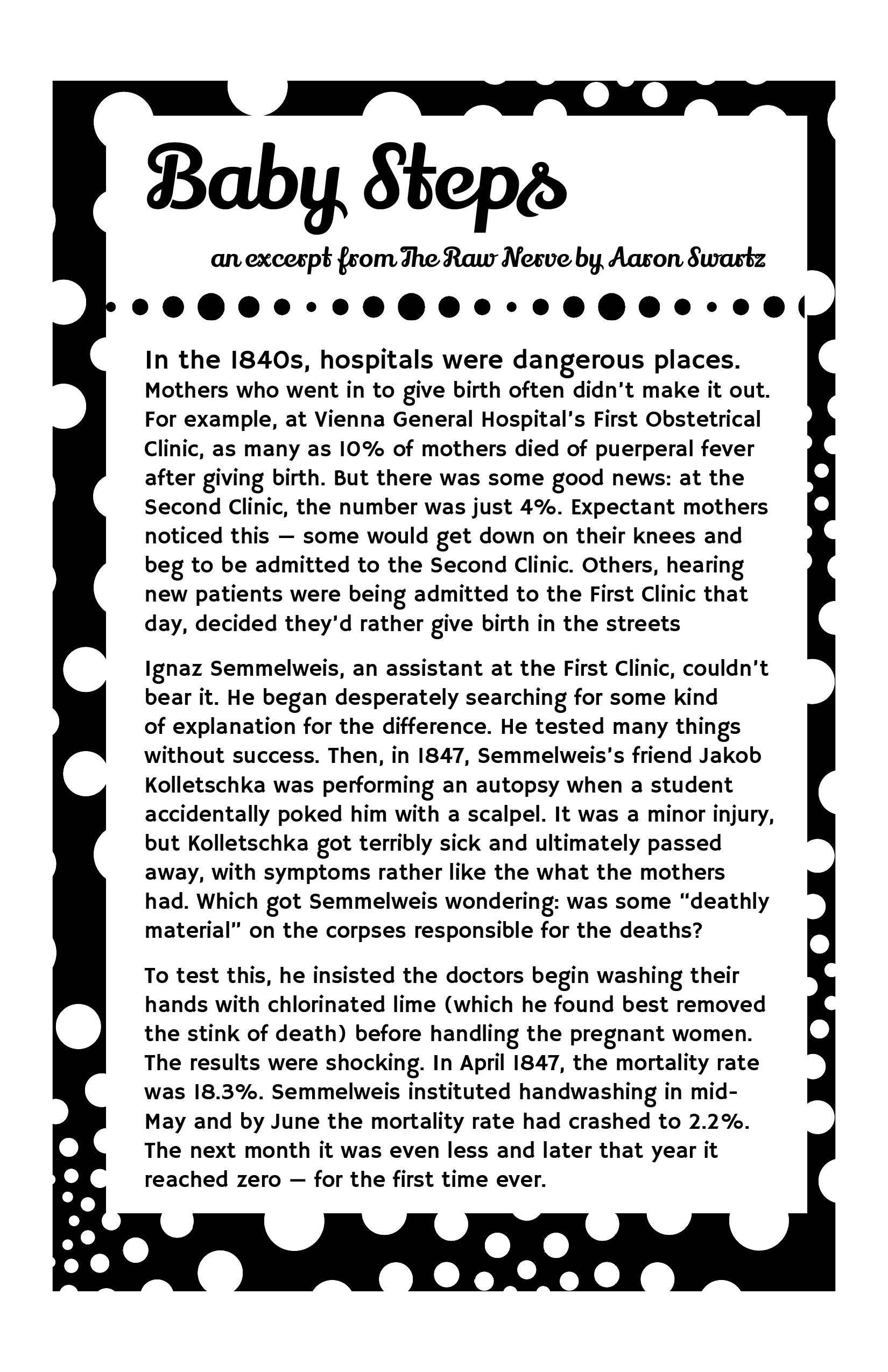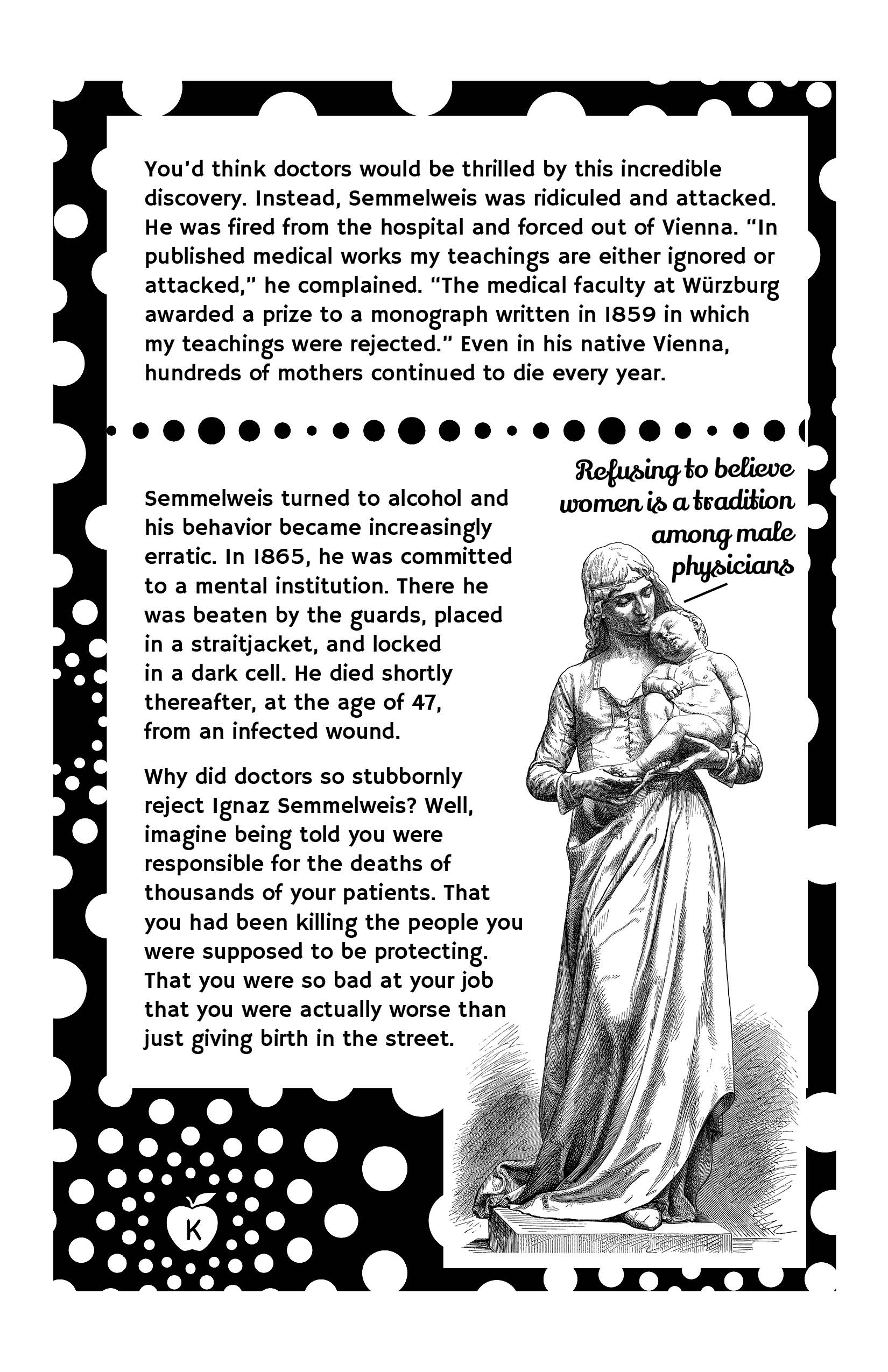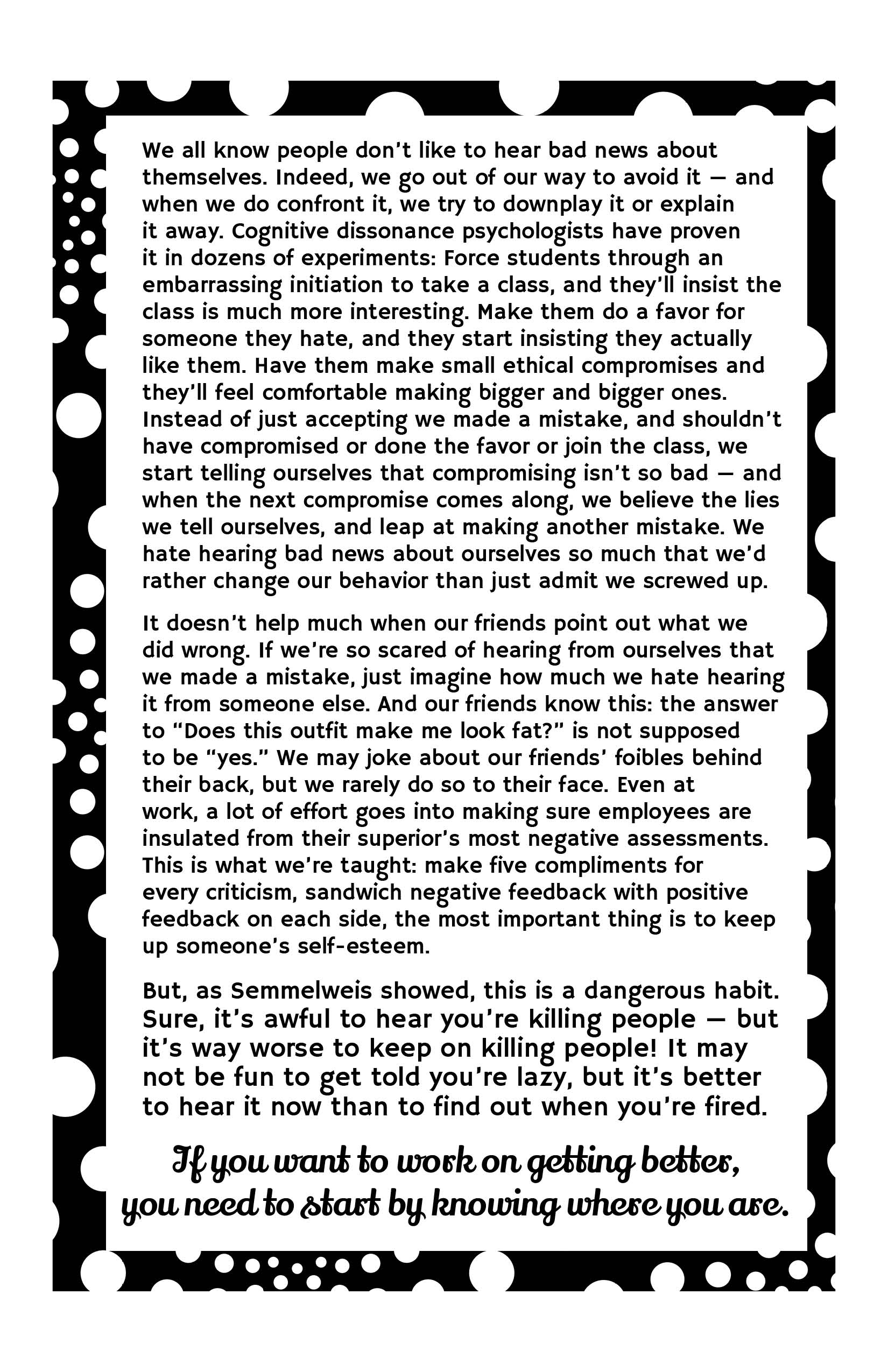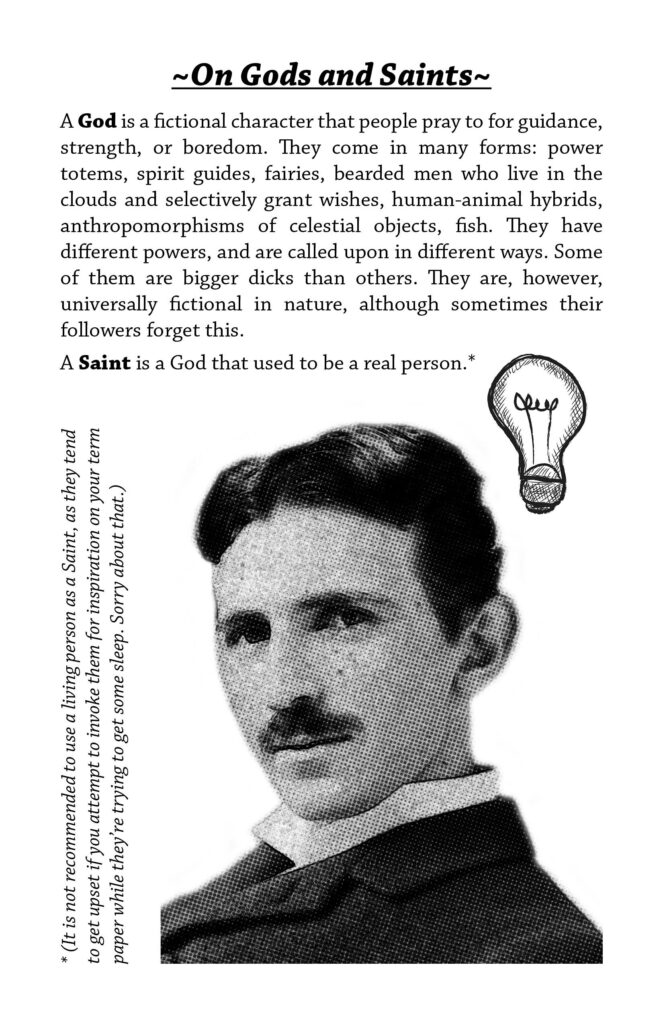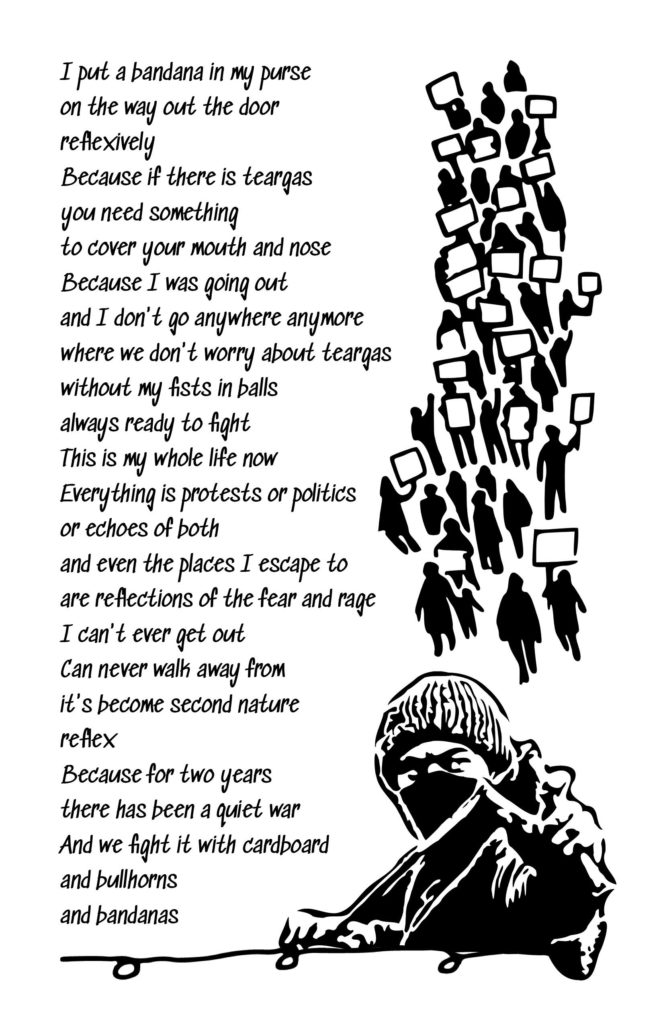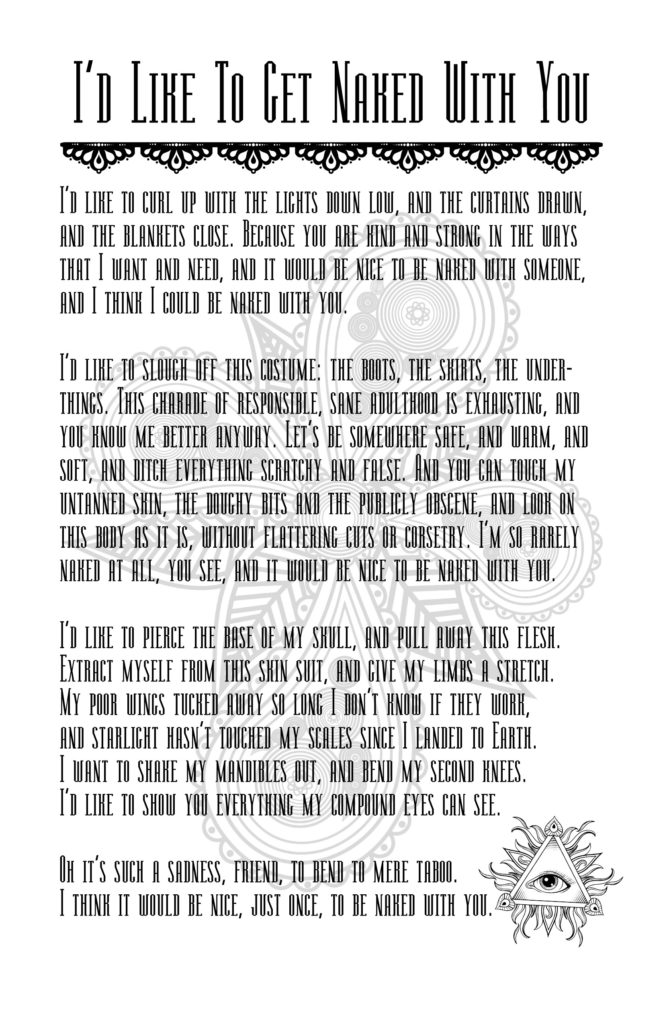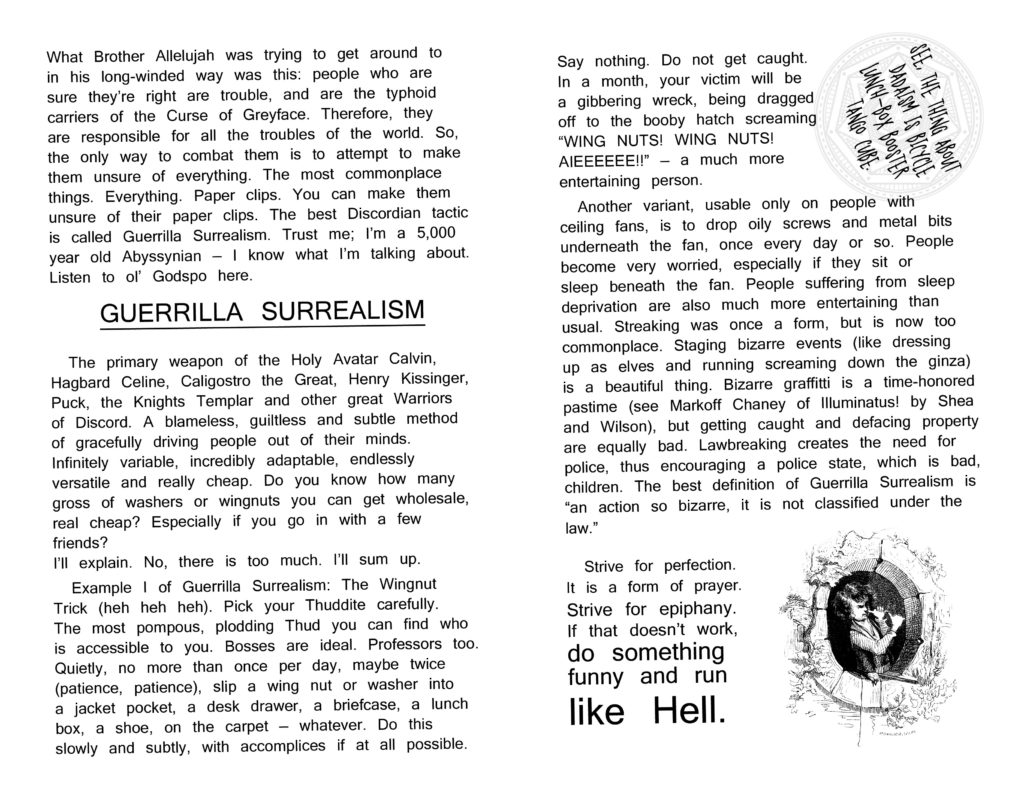Baby Steps – An Excerpt from The Raw Nerve by Aaron Swartz – In the 1840s, hospitals were dangerous places. Mothers who went in to give birth often didn’t make it out. For example, at Vienna General Hospital’s First Obstetrical Clinic, as many as 10% of mothers died of puerperal fever after giving birth. But there was some good news: at the Second Clinic, the number was just 4%. Expectant mothers noticed this — some would get down on their knees and beg to be admitted to the Second Clinic. Others, hearing new patients were being admitted to the First Clinic that day, decided they’d rather give birth in the streets.
Ignaz Semmelweis, an assistant at the First Clinic, couldn’t bear it. He began desperately searching for some kind of explanation for the difference. He tested many things without success. Then, in 1847, Semmelweis’s friend Jakob Kolletschka was performing an autopsy when a student accidentally poked him with a scalpel. It was a minor injury, but Kolletschka got terribly sick and ultimately passed away, with symptoms rather like the what the mothers had. Which got Semmelweis wondering: was some “deathly material” on the corpses responsible for the deaths?
To test this, he insisted the doctors begin washing their hands with chlorinated lime (which he found best removed the stink of death) before handling the pregnant women. The results were shocking. In April 1847, the mortality rate was 18.3%. Semmelweis instituted handwashing in mid-May and by June the mortality rate had crashed to 2.2%. The next month it was even less and later that year it reached zero — for the first time ever.
You’d think doctors would be thrilled by this incredible discovery. Instead, Semmelweis was ridiculed and attacked. He was fired from the hospital and forced out of Vienna. “In published medical works my teachings are either ignored or attacked,” he complained. “The medical faculty at Würzburg awarded a prize to a monograph written in 1859 in which my teachings were rejected.” Even in his native Vienna, hundreds of mothers continued to die every year.
Semmelweis turned to alcohol and his behavior became increasingly erratic. In 1865, he was committed to a mental institution. There he was beaten by the guards, placed in a straitjacket, and locked in a dark cell. He died shortly thereafter, at the age of 47, from an infected wound.
Why did doctors so stubbornly reject Ignaz Semmelweis? Well, imagine being told you were responsible for the deaths of thousands of your patients. That you had been killing the people you were supposed to be protecting. That you were so bad at your job that you were actually worse than just giving birth in the street.
We all know people don’t like to hear bad news about themselves. Indeed, we go out of our way to avoid it — and when we do confront it, we try to downplay it or explain it away. Cognitive dissonance psychologists have proven it in dozens of experiments: Force students through an embarrassing initiation to take a class, and they’ll insist the class is much more interesting. Make them do a favor for someone they hate, and they start insisting they actually like them. Have them make a small ethical compromises and they’ll feel comfortable making bigger and bigger ones. Instead of just accepting we made a mistake, and shouldn’t have compromised or done the favor or join the class, we start telling ourselves that compromising isn’t so bad — and when the next compromise comes along, we believe the lies we tell ourselves, and leap at making another mistake. We hate hearing bad news about ourselves so much that we’d rather change our behavior than just admit we screwed up.
It doesn’t help much when our friends point out what we did wrong. If we’re so scared of hearing from ourselves that we made a mistake, just imagine how much we hate hearing it from someone else. And our friends know this: the answer to “Does this outfit make me look fat?” is not supposed to be “yes.” We may joke about our friends’ foibles behind their back, but we rarely do so to their face. Even at work, a lot of effort goes into making sure employees are insulated from their superior’s most negative assessments. This is what we’re taught: make five compliments for every criticism, sandwich negative feedback with positive feedback on each side, the most important thing is to keep up someone’s self-esteem.
But, as Semmelweis showed, this is a dangerous habit. Sure, it’s awful to hear you’re killing people—but it’s way worse to keep on killing people! It may not be fun to get told you’re lazy, but it’s better to hear it now than to find out when you’re fired. If you want to work on getting better, you need to start by knowing where you are.

